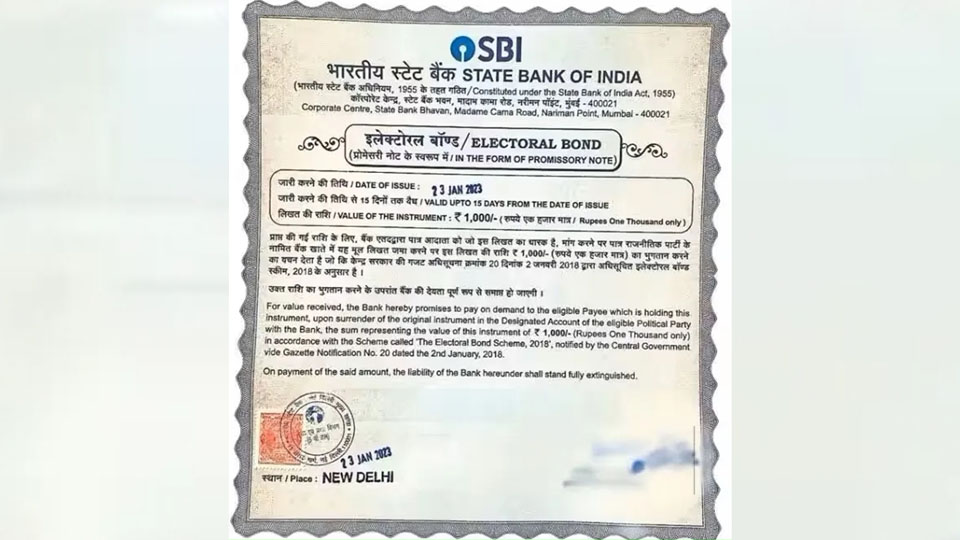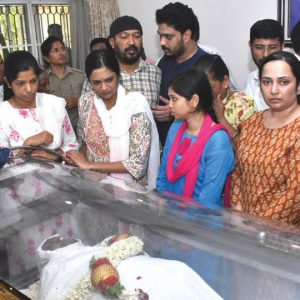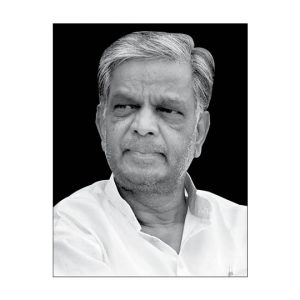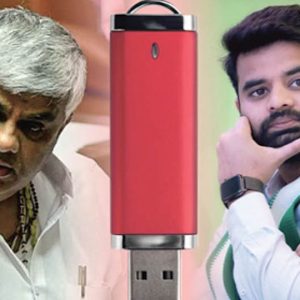By Prof. M. Umapathy, Retd. Professor and Head, Department of Political Science, University of Mysore
The tragic story of ‘Electoral-Bonds’ (2017-2024) is a remarkable development in the growth of India’s Democracy. None other than the Supreme Court of India, in its judgment on 15th February 2024, declared it as “Unconstitutional” and ended it.
E-Bonds, which promised to end black money and corruption in Indian elections, failed in its promise of bringing transparency in political funding. The layers of secrecy around it denied the voter the Right To Information under Article 19(1)(a) about who gave and who received the funds under E-Bond.
It violated the RBI Act, as well as the objections to the scheme by the Reserve Bank of India and the Election Commission of India. It pursued the indirect and questionable route of the “Money Bill” to amend various standing legislations like the RBI Act, Banking legislation and the Companies Act. Supreme Court judgment exposed this, as never before, all these and more, the suspected quid-pro-quo (give and take) between the fund-giver and the fund-taker, indicating possible corrupt practices. It was the much-needed sunlight on the role of Big-Money Power in Indian Politics.
E-Bonds have ended. What next? is the question in the minds of all. The Abracadabra in Star of Mysore dated Apr. 2 on this, was a powerful write-up with concerns for the strength and health of our Democracy.
Democracy in Theory
Abraham Lincoln, the President of USA in the mid-19th century, innocently defined Democracy as a government by the people, for the people, and of the people. Mr. Nathpai, a socialist member of India’s Parliament in the 1960s and 1970s, defined Democracy in operation as “buy the people, for the people and of the people,” indicating the role of ‘Big-Money’ in democracies.
‘Democracy’ which means rule by the people is never true. Giovanni Sartori, in his classic book Democratic Theory, convincingly points out that Democracy is ‘Neither all power to the people nor rule by all the people.’ Governments are always by few.
Democracy differs from other forms of governments by the three ‘Rs’ (Representative, Responsive and Responsible government) it stands for. The Representative nature of Democracy realised through periodic free and fair elections is the most important first step to realise the other two ‘Rs’ (Responsive and Responsible government or good governance). We should also remember that though Democracy believes in the people’s sovereignty, it does not give ‘all the power to the people.’ Indeed, Democracy is better understood as ‘all power to none,’ the opposite of ‘all power to one’ (dictatorship).
Democracy believes in and works on the ‘theory of separation of powers of government in many ways — horizontally as legislative, executive and judicial and vertically into various federal units. This makes Democracy ‘a government by check and balance’ and ‘a government by discussion.’ The intention is negatively to prevent the rise of dictatorship and positively to promote a ‘rational government in the interest of the public.’
Democracy in practice
Elections, so primary to Democracy, have only gradually reformed from being a tool of the vested interests like the royals, landed gentry, urban bourgeois, only men, educated men, or tax-paying men. The right to vote of all adults, called as Universal Adult Franchise, is indeed a twentieth-century development. It permits each adult to have a say in deciding who should rule us and promote the public interest.
But, the ‘vested interests’ have never allowed the power of the people or public interest to be real. They continue to influence and control the power of the people through ‘muscle power’ and ‘money power’ promoting their own private interests.
In the early elections, held in England, the place of origin of the modern electoral system, elections were held in open public meetings through show of hands. It was a season for ‘brawling and merry-making.’
“Rivers of beer were set flowing; bribes were openly offered and accepted; organised bands of ‘bludgeon-men’ went about intimidating and coercing electors; non-voters thrust themselves joyously into the fray; political convictions were expressed in terms of ‘rotten-apples’ and ‘dead cats,’ heads were broken and a generally riotous time was had by all (Ogg. F. A. English Government and Politics 1936 p8 298-99).
Such electoral constituencies were called “rotten boroughs” and “pocket boroughs” of the rich and the goons. [Incidentally, The Hindu of 8th April 2024, p5, reports the seizure of “beer worth Rs. 9.54 crore in Hassan District, Karnataka on Saturday, the 6th April for violating Model Code of Conduct. Shall we say ‘beer is immortal’ or the ‘vested interests are eternal?’ Better we say they are!].
Elections moved gradually towards ‘Secret-Ballot’ with ballot paper, ballot boxes and ballot booths. Soon, muscle powers and money powers developed the technique of ‘Booth-Capturing’ and stuffing ballot boxes at their wish. The EVMs (Electronic Voting Machines) which replaced paper ballots reduced booth capturing. But the fairness of these cyber machines is clouded with the possibility of cyber crimes in manipulating voting. The Supreme Court of India is yet to give its final verdict on them. EVMs finality is yet to emerge. European nations have moved back and forth between EVMs and ballot boxes.
Muscle Power and Money Power
Of the two dark shadows of muscle power and money power, the muscle power is not so much in the open now, but it is still visible. The alarming increase in the number of our MPs and MLAs with criminal cases against them is proof enough.
The most worrisome shadow power of today is the ‘Money-power.’ It has made a mockery of Democracy by tempting, trancing and triumphing the people to promote the interests and power of the moneyed. The increasing number of ‘Crorepatis’ as candidates in our elections, elected MPs and MLAs in our Democracy and the ever-increasing seizure of crores and crores of rupees in our elections, including the elections – 2024 reported in our media, testify to this evil.
The Search for an Alternative
This search must answer, two important questions:
i) Why should elections be so costly? ii) Who should pay this cost to make Democracy healthy?
Our answers to these questions can only be indicative here, not exhaustive.
Our elections are unnecessarily over-expensive. They are deliberately designed that way by the note-vote nexus that dominates. The political class gets notes, votes and power in that order. The private money bags that contribute to the economy ensure enormous returns to themselves through the quid-pro-quo arrangements with the political parties.
The expenses in elections are very high due to the heavy costs of printing, TV time buying, expenditure on advertising space, hiring an army of campaigners and the endless amounts needed to tempt and trans the voters. The Representation of The People Act, 1951 has placed limits on the individual candidate’s expenditure from Rs. 65 lakh to Rs. 95 lakh, depending on the size of the Constituency. Every candidate spends tens of crores above this limit. But they lie to the EC and Parliament, saying they have not exceeded the statutory limits. According to an ex-Election Commissioner (on TV) nearly 50 percent of the candidates even dare say that they have spent only half of the amount permitted. In addition, the political parties too spend enormous amounts on elections, with no limits or ceilings imposed on it.
The resulting flood of money makes free and fair elections a myth. The political party with the biggest money power literally bulldozes the election. It emasculated if not obliterates the level playing field.
[To be continued tomorrow]








Recent Comments